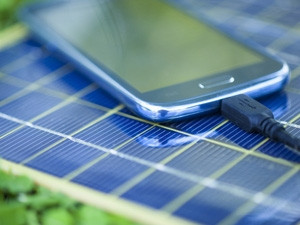
In what could mean a reprieve from constant protracted smart device battery charging, researchers have used aluminium-ion cells to develop a battery that can be charged in about a minute.
According to PC World, Stanford University researchers have managed to create a "radical" new battery that is both safer than the lithium-ion batteries consumers have come to know - and considerably faster to charge.
The battery reportedly uses aluminium-ion cells, which are also much cheaper than lithium-ion. "They're also high performance and are not prone to bursting into flames or exploding when damaged, as lithium-ion batteries can do," says PC World.
Apparently, the one-minute battery was the result of an accidental discovery.
Fears have in the past arisen over the dangers associated with lithium-ion batteries. In mid-2013, a fatality in China involving an iPhone 5 raised the alarm on the danger smartphones can pose as the devices become more powerful and their lithium-ion batteries increase in size to keep up.
A few months after the said fatality, an Apple iPad exploded, causing a Vodafone store in Australia to be evacuated.
Battery bane
Researchers have long been trying to solve the problem of dying batteries, which has become the bane of smart device users who presently have no choice but to use stopgap measures - such as USB chargers and power banks - to keep their smartphones and tablets alive.
Last year, Stanford researchers reportedly made a breakthrough with the development of a pure lithium battery that could triple a smartphone's juice, while in 2013 a teenager was handsomely rewarded for coming up with a 20-second cellphone charger.
BlackBerry has said it is investing in developing longer-lasting batteries, and claims its Z30 can last up to 25 hours with mixed use, while Google specifically worked on its recent Android operating system version, KitKat 4.4.4, to extend battery life by up to 35%.
Share